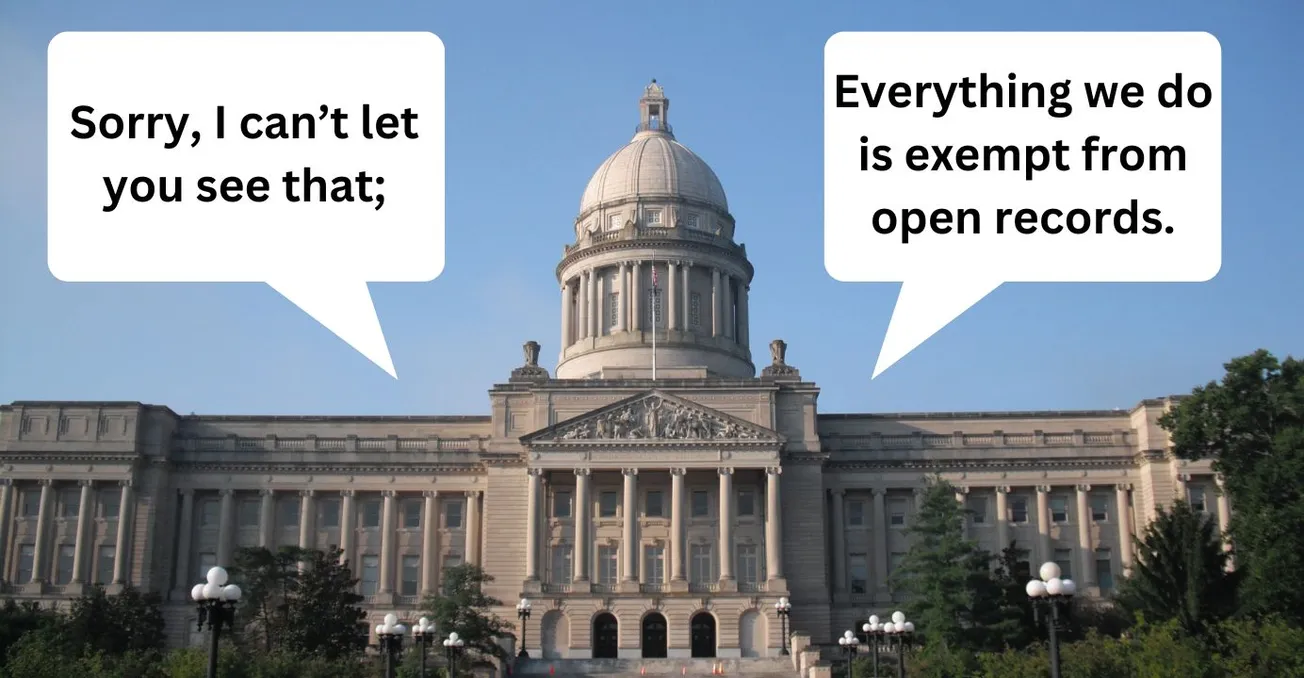Mississippians this week continued to lament the Mississippi Ethics Commission’s recent opinion that the state legislature is not subject to the Mississippi open meetings law.
The real damage being done by contortions Ethics Commission is doing on whether Legisllature is public body is how it makes Mississippi look. In what universe is a legislature -- most high profile public body in any state -- not public? Oh, Mississippi.https://t.co/BH1xMTf5cS
— Bobby Harrison (@BobbyHarrison9) December 9, 2022
The Mississippi Ethics Commission stopped short of issuing a final order in the dispute — which arose when the Mississippi Free Press questioned whether House Speaker Philip Gunn violates the state’s open meetings laws when he holds meetings of the Republican Caucus behind closed doors. Members of the Ethics Commission offered assurances at this week’s special meeting: “The Legislature is not going to close its doors regardless of what we do today.”
Here, Kentucky leads Mississippi in the race to the bottom.
Kentucky’s legislature: a history of more and more secrecy
Decades ago the Kentucky’s legislative caucuses successfully maneuvered their way out of the open meetings law — following adverse 1993 Attorney General’s open meetings decisions — by adopting House and Senate resolutions recognizing their majority and minority caucuses as “[c]ommittees of the General Assembly other than standing committees” exempted from the open meetings law under KRS 61.810(1)(i).
Not satisfied with closed caucus meetings, in 2017 the House of Representatives illegally conducted a closed meeting of the full House, with the exception of Representative Jim Wayne whose refusal to attend was premised on the obvious open meetings violation. A legal challenge ensued, and in 2018 the Franklin Circuit Court rejected the House’s spurious argument that the closed meeting of the full House — minus one — was a majority caucus meeting to which the minority caucus was invited.
The 2019 Regular Session of the General Assembly commenced with the question: “When did the legislature abandon any pretense of compliance with the open meetings laws, and when did Kentuckians abandon any expectation of compliance?”
Later that year, lawmakers proposed legislation aimed at limiting public access to its records that would culminate in 2021’s statutory exclusion of the General Assembly and Legislative Research Committees from the open records law.
The 2021 legislation tightened the noose on public accountability by excluding legislative records from the open records laws for all purposes. They established a narrowly drawn statutory scheme for legislative records access, and divested the courts of jurisdiction to review denial of access to legislative records.
(The Attorney General was divested of his statutory authority to review open records appeals involving records of the General Assembly in 2003.)
In 2021, the Kentucky Open Government Coalition wrote:
“There is only one thing more disturbing than the reality of lawmakers run amuck. That is the reality of lawmakers run amuck who are accountable through neither their meetings nor their records to the people they serve.”
To the question posed this week by dispirited Mississippians, “In what universe is a legislature — the most high profile public body in any state — not public,” we respond:
Oh ... Kentucky.
--30--








